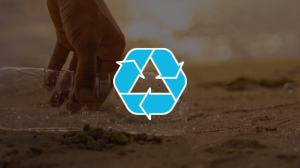A first-of-its-kind ‘plastic treaty’ could end one of the world’s biggest sources of pollution: ‘The choice is clear’
Plastic pollution could finally meet its match as the United Nations Environment Programme (UNEP) takes a groundbreaking step to tackle the issue.
In a recent meeting, governments worldwide agreed to draft a treaty to control plastics, potentially reducing production by an astonishing 80% by 2040. This international agreement, developed by The Intergovernmental Negotiating Committee on Plastic Pollution, aims to curb all types of plastic pollution, including in marine environments, and could prevent trillions of dollars’ worth of damage while fostering a future free of plastic pollution.
A first-of-its-kind ‘plastic treaty’ could end one of the world’s biggest sources of pollution: ‘The choice is clear’
The plastic boom could finally be going bust.
As the Guardian recently reported, the United Nations Environment Programme (UNEP) just took a major step toward ending plastic pollution.
The Guardian reported that at a recent meeting in Paris — the second of five “plastic summits” scheduled before the end of next year — the World’s governments agreed to draft a treaty to control plastics, which a report by the UN showed could cut production by a whopping 80% by 2040.
The first-of-its-kind international, legally-binding plastics treaty is being developed by The Intergovernmental Negotiating Committee (INC) on Plastic Pollution and will curb all kinds of plastic pollution, including in marine environments.
Plastic is a major contributor to toxic planet-warming gases, and the UNEP reported that pollution from it can “alter habitats and natural processes, reducing ecosystems’ ability to adapt to climate change.”
The AP reported that every year, 430 million tons of plastic are produced globally, two-thirds of which are “short-lived” and presumably often single-use. The Guardian reported that if plastic usage is allowed to continue at its current rate, it could double by 2050.
Further, most plastic can’t be recycled, and as it breaks down, it creates harmful microplastics, which have now been found in almost every region on the planet and even in the human body.
The UN report estimated that over the next 20 years, the proposed 80% cut in plastic pollution would prevent $3 trillion worth of damage, including impacts on human health, climate, air pollution, the ocean environment, and legal costs for lawsuits against major plastic companies.
The UNEP furthered that the 80% reduction can be reached using proven practices like eliminating single-use plastic, ensuring reuse, and swapping out plastic with sustainable and biodegradable materials.
In a press release, Inger Andersen, Executive Director of the UNEP, said, “Plastic has been the default option in design for too long. It is time to redesign products to use less plastic, particularly unnecessary and problematic plastics, to redesign product packaging and shipping to use less plastic, to redesign systems and products for reuse and recyclability and to redesign the broader system for justice.”
In a separate press release, Erin Simon, WWF-US Vice President for Plastic Waste and Business, agreed, adding that “the world is watching, and the choice is clear. It’s time to capitalize on this momentum and shape a future free of plastic pollution.”
Erin Feiger, Yahoo! News, July 11, 2023.



